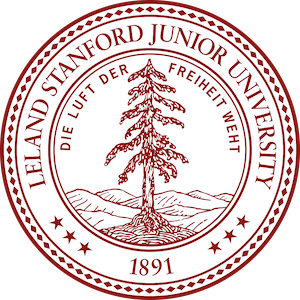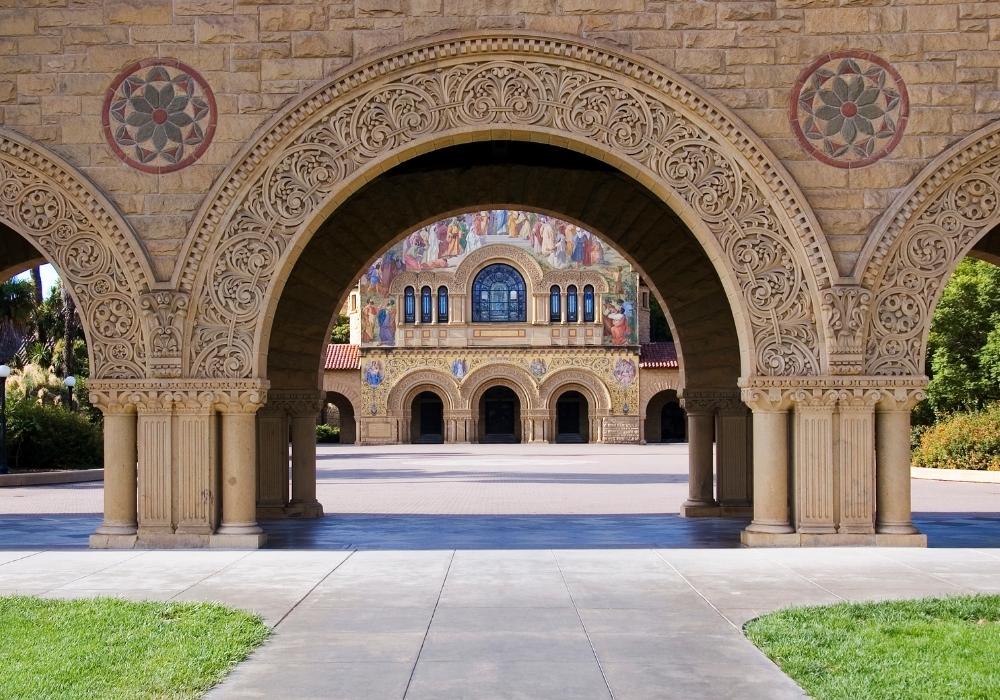
The Ivy Scholars guide to Stanford University’s culture, admissions, and other essential information for prospective students and their families.
Statistics
Rankings
Dates + Deadlines
Statistics
Strategy
Schools +Colleges
Core Requirements
Special Programs
Housing
Campus + Area
Student Orgs + Athletics
Cost
Financial Aid
Scholarships
Stanford University’s 4000-acre, tree-lined campus is next door to the city of Palo Alto. Palo Alto contains a sizable portion of the campus including Stanford Shopping Center and Stanford Research Park. Located 35 miles South of San Francisco and 20 miles North of San Jose, Stanford University is in the heart of Northern California’s dynamic “Silicon Valley.”

US News Rankings:
Independent Rankings:
Acceptance Rates:
Average Applicant Pool: 49,000
Average Number of Applicants Accepted: 2,050
Average Number Enrolled: 1,700
Application Systems: Common App, Coalition App
SAT Scores: 25th% – 1440, 75th% – 1550
ACT Scores: 25th% – 32, 75th% – 35
*Test mandatory. Writing sections are not required.
Demonstrated Interest:
Stanford does not consider demonstrated interest.
Recommendation Letter Policies:
One counselor recommendation and two teacher recommendations with one relating to the planned field of study. One optional recommendation letter in addition to those two will be accepted.
Stanford Essay Prompts:
Special Notes:
Transfer:
There should be a key identifiable trait among your achievements and extracurriculars to set you apart from the rest of the applicants.
Enter your information below and submit for access to the guide.
Schools:
Core Requirements:
Courses of Study:
AP Credit Policies:
Honors Programs:
Several programs allow students from any major to participate in an interdisciplinary honors program.
Research Availability:
Study Abroad:
Business Options:
Pre-Med Options:
Pre-Law Options:
Computer Science Options:
Additional Specialty Programs:
Programs for High Schoolers:
School Motto: The Wind of Freedom Blows
Mission and Values:
There are a plethora of different housing options that are differentiated along various criteria, including language and culture, academic theme, and imagined learning environments.
Residential Housing System:
Housing Statistics:
Campus & Surrounding Area:
Transportation:
Traditions:
Student-Run Organizations:
Sports:
Greek Life:
Nightlife:
Yearly Cost of Attendance:
Financial Aid:
The Stanford financial aid program is need-based, meaning that all aid eligibility is determined by your family’s financial circumstances. While the student and their parents have the primary responsibility for paying for college, financial aid can bridge the gap between the total costs and your ability to pay. The average amount of money received from Scholarships and Grants from all sources received by need-based aid recipients in the current freshman class is $58,494. This includes $52,030 average scholarship from Stanford as well as grant funds received from federal, state, and private resources.
Additional Financial Aid & Student Loan Information
Scholarships:

Ivy Scholars is the leading educational consultant in Sugar Land, Texas, providing admissions coaching, test prep, and more to help students enroll at top tier schools.

Call us now: +1 (281) 215-5148
.
Get expert tips, admissions updates, and resources delivered straight to your inbox.


